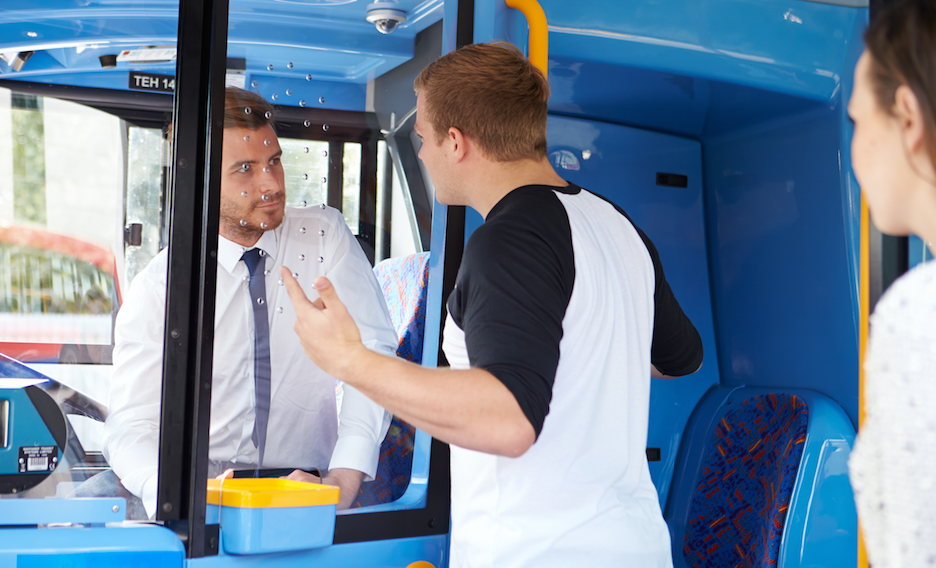Mobile Tickets That Only Work When Online Infuriate Passengers and Reduce Uptake
Bad coverage has always been the number one complaint of mobile phone users everywhere, and despite the continued evolution to 4G and soon 5G networks, the problem is not going away. Networks are getting more bandwidth but coverage still isn’t universal.
Two core design assumptions when building the Justride mobile ticketing platform, were that phones are likely to be lost or stolen and that coverage cannot be guaranteed. We'll cover the lost and stolen angle in another blog post, however today we're going to look at offline usage and why this is so crucial to successful mobile ticketing deployments.
It’s clear that with no internet connection on your phone at all, it’s impossible to go online, download an app, or buy a ticket. However, with Justride we have built a system that minimises the number of connections required and the amount of data transferred. This runs through everything from the size or our apps, to the amount of data that you need to transfer to make a ticket purchase and download your ticket. Part of this comes from our heritage where our first mobile ticketing apps we built for Nokia phones back in 2007 weighed in at a tiny 64Kb - or roughly the size of a gif; we also were able to do the full transaction only transferring 1Kb of data over two network requests. This was a necessity as the phones had tiny storage and the standard GPRS network back then, even in optimal conditions, only gave download speeds of 85kbps. Obviously our apps today are larger, but the same ethos prevails in our approach to system architecture. Less data sent and received means faster and more reliable access.
Offline Activation is Key to Successful Mobile Ticketing Deployments
We also allow offline activation - meaning that once you have your ticket on your phone, in order to use it you don't need to make an internet connection. The need to go online to use a ticket is a trap that many systems fall into. The requirement for a data connection to open or activate a ticket introduces a serious potential issue for passengers - not being able to use a pre-purchased ticket - it also takes time, which can slow down boarding on a bus or when getting through a gate - removing a key benefit of mobile ticketing. Some worst-case scenarios we’ve seen link from the app to a web page to get access to tickets, or tickets are only accessible via a mobile web page - which can be an incredibly poor user experience and severely limit adoption.
The Transport and Data Connection Headache
Accessing transport services is often the worst environment to get a data connection. Passengers may be in a rural location where signal can be weak, or non existent, or at busy stations where everyone is fighting for signal. Many stations in cities and towns, for both overground and underground services are themselves located underground and many trains have reflective ‘silvered’ windows to control heat, but that also reduce phone signal. Additionally while passengers may be logged onto an on-board train of bus Wi-Fi network, these require a cellular link to operate and are increasingly congested offering very slow data speeds. Then there is the issue of accessing tickets while on a fast moving vehicle or while in a tunnel. It’s clear to see that transit and data connections are unreliable and mobile ticket systems need to reflect this.
If you're looking to procure a mobile ticketing system, how and when users require a connection is a critical question and if ticket activation or access requires an internet connection you are running a solution in which tickets can be bought and not accessed by passengers. In our view, running a ticketing system this way is not fit for purpose and the damage this experience can cause for passengers will severely limit adoption.
Masabi's Justride platform allows passengers to activate tickets offline, meaning services can be accessed without an internet connection. This pragmatic design approach is a key ethos at Masabi and we like to think the benefits to transport agencies, operators and passengers are pretty clear. While much of the hype in the mobile world today is around 5G, there is no evidence this is going to appear anytime soon or solve the coverage problems!
ebook: 15 Questions to Ask Your Mobile Ticketing Supplier - Before You Take the Plunge
In order to help keep passengers and drivers as safe as possible, some transport operators are looking to introduce mobile ticketing as a zero-touch way to pay and ride, which can be live in a few weeks. When considering adding mobile ticketing to your current ticketing options, there are a number of key questions to ask to ensure the system you are taking and the supplier you are selecting are right for you. From features to security, design to speed of deployment, roadmap to back-office capabilities, usability to support. It is vitally important to check all the boxes.
Here are the top 15 questions to ask your mobile ticketing provider to ensure the platform you select is the right one for you. Click here to download the ebook.


